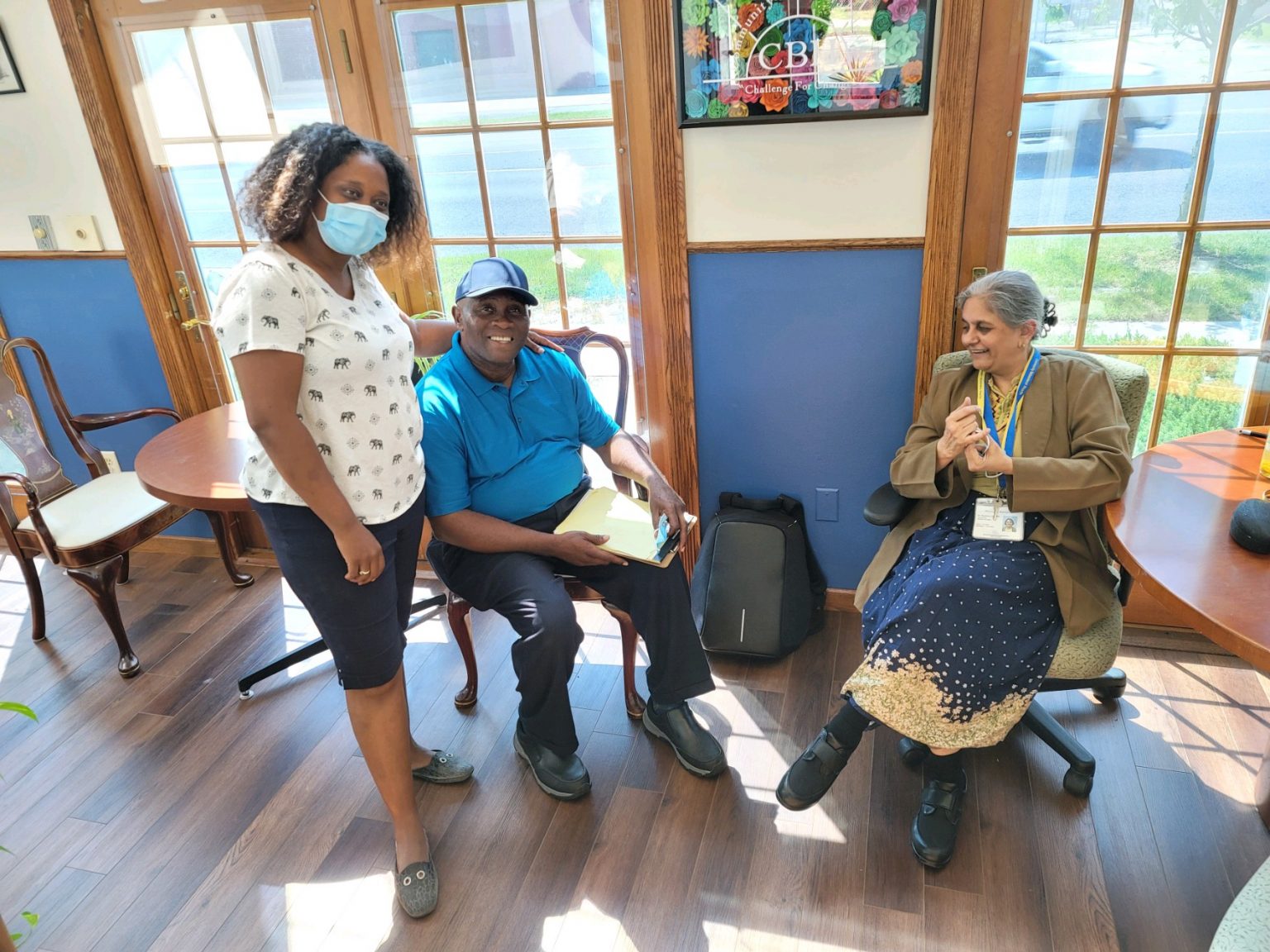One-on-One Outreach: UMB Schools Combat COVID-19 Vaccine Hesitancy and Misinformation in the Community
January 05, 2022 Joanne Morrison
Learn about how community health experts are partnering with key community and faith-based groups to reach the most vulnerable and underserved communities, in “CATALYST” magazine.
University of Maryland, Baltimore (UMB) employees and students have canvassed neighborhoods to make COVID-19 vaccine appointments for the most vulnerable. They’ve held vaccination clinics for families at community schools. They’ve served on panels and answered hotline calls to combat misinformation about the vaccines. And now as part of UMB’s continued outreach to increase vaccination rates, community health experts are partnering with key community and faith-based groups to reach the most vulnerable and underserved communities.
Community outreach experts in the Department of Family and Community Medicine (DFCM) and the Department of Psychiatry at the University of Maryland School of Medicine (UMSOM) are working with groups in Baltimore, including the AME Zion Church and the NAACP’s local branch as part of the Community-Based Workforce for COVID-19 Vaccine Outreach Program.
The program will support families with children ages 12 to 15, including those with special behavioral health needs, by addressing barriers to vaccines. It also will provide culturally relevant information, practical support, and one-on-one conversations with trusted community partners about vaccine concerns.
The multistate program, which extends across Maryland, Delaware, Virginia, and West Virginia, is funded by a $7.8 million award from the U.S. Health Resources and Services Administration (HRSA). It builds upon community work already underway by UMSOM that is funded by the Maryland Community Health Resources Commission and aims to reach individuals in vulnerable communities at the grassroots level across the state.
“It is critical to understand that the objections and concerns about getting vaccinated are real and valid in these communities in order to address them,” said Niharika Khanna, MBBS, MD, DGO, professor, DFCM, section chief of population health in the department, and co-principal investigator (PI) for the program. “We must acknowledge them and tailor our conversations accordingly.”
Read more about UMB's vaccination outreach at CATALYST magazine.
You can read the Fall 2021 issue of CATALYST magazine, which highlights research on veterans with PTSD training service dogs; a celebration of our new Community Engagement Center; outreach by the School of Social Work’s Positive Schools Center; Diane Forbes Berthoud, PhD, MA, UMB’s first chief equity, diversity, and inclusion officer and vice president; our students returning to in-person learning; and much, much more at https://catalystmag.umaryland.edu/.